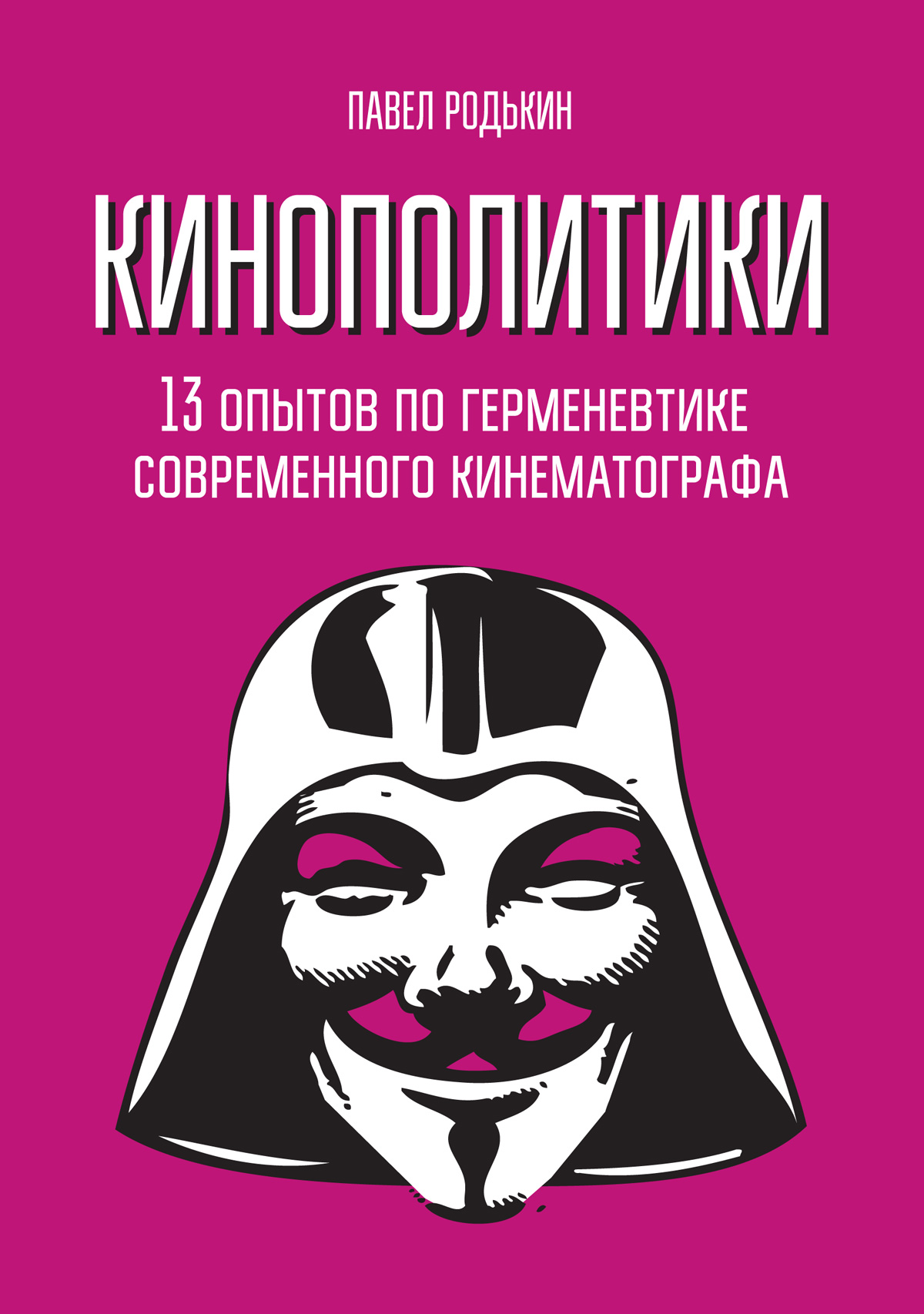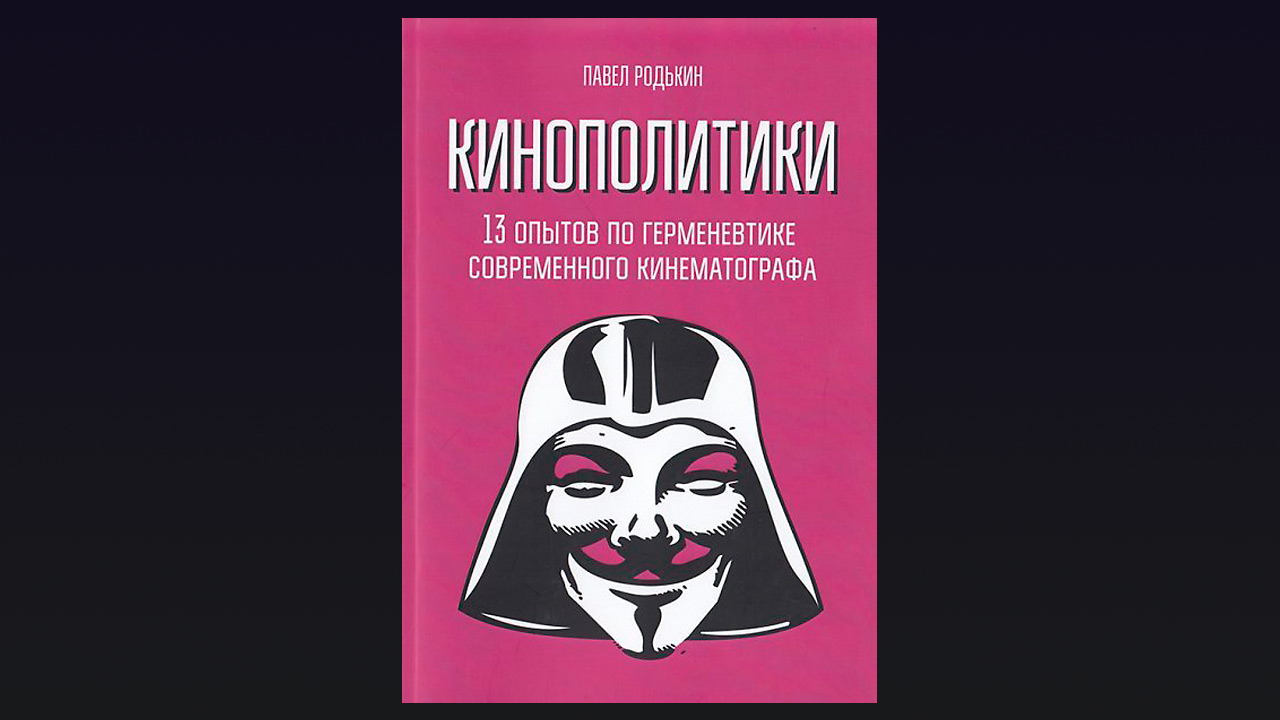

Rodkin, P. (2018). Cinemapolitics. 13 Experiments on Hermeneutics of Modern Cinema. Moscow: Sovpadenie. 184 p. (In Russ.). [Rod'kin, P. (2018). Kinopolitiki. 13 opytov po germenevtike sovremennogo kinematografa. Moskva: Sovpadenie.].
The study is devoted to hermeneutics of cinema of the twentieth century, the disclosure of the excluded content and the work of film policy based on the analysis of more than a hundred foreign and Soviet/Russian films. The book will be of interest to all who are interested in the phenomenon of mass culture, cinema and the essence of power in their philosophical, sociological and cultural-political interpretation.
Language: Russian
Design: Pavel Rodkin
Paperback: 184 pages
Size: 145x205 mm.
ISBN 9785950056536
© Rodkin, P., 2018
© Publishing house "Sovpadenie", 2018
Redactor's Foreword
Ideology after Marx, cinema after Zizek
Metropolis: Basis is not clear to the masses
Dune: Revolution stuck in ideological sands
They Live: Planetary unity of elites
Lenin in 1918: Maybe he is generally kind?
"1984"/1956 and "1984"/1984: Totalitarian interface and power aesthetics
Star Wars: The last ghost of the Cold War
Passengers: When the end of history becomes reality
Steve Jobs: Avatars of power and lone geniuses
Seconds: The neoliberal morality of rebirth
Code of dishonor: The pleasure of self-destruction
The Intern: All to defend capitalism from enemies!
A Hologram for the King: Ideological happy end of the era of globalism
House of Cards: Cynical selfie of power
Filmography
Bibliography

On the surface, Pavel Rodkin's book resembles numerous works criticizing ideology. But this is only a superficial resemblance. Here you will not see appeals to some reality that ideological overlays conceal. In fact, ideology has covered the entire space of what we once understood to be real. And if contemporary critiques of ideology still try to return to the concept of reality (even if in the Lacanian version, as its absence), trying to reconstruct it or deconstruct this context from the absent center, that is, the real as such, then the analysis that Pavel Rodkin offers is devoid of such temptation. Unlike Slavoj Žižek's work on cinema, this analysis is not fascinated by the capture of the elusive real: for in a world where reality is not given, that is, absent, what is real is the very absence of reality. Censorship is the main ideological apparatus of the state. It determines the modes of subjectivation in the famous act of interpellation described by Louis Althusser. It decides who the policeman addresses and who does not, who becomes the "subject" in this act of calling out "hey, you!", that is, a full-fledged agent of social interaction, and who does not. Who will become sane, and who will remain insane, someone on whom ideology has no effect. And since all of us who can read this book are already sane — there are no lunatics among us — we are all, in one way or another, already "censored," assembled and offered to communicate with each other and the big Other that our fantasies gather on the other side of the screen and in whose gaze we ourselves gather. This is not a clinical analysis, not a psychological analysis, but a political analysis.
Marx, in "Notes on the Modern Prussian Censorship Instruction," defined censorship as official criticism. Contemporary cinema, especially blockbuster cinema, is this kind of "official criticism," that is, a condition for the possibility of expression. The subjectivizing, ideological function of cinema consists in determining the conditions of possibility for film language, the named and the unnamed, the included and the excluded. This book is devoted to the search for the excluded content and the modes of inclusion of anything in the frame, that is, the quiet and imperceptible work of the transcendental mechanism of censorship.
Vyacheslav Danilov
The author formulates meaningful theses about power, as if "pulling" them out of complexly twisted plots of different, both foreign and Soviet/Russian, films. After analyzing the films, we can say with confidence that the essence of power is supranational and universal, beyond time and space, beyond state borders and different ideologies.
Lubov Choi
The well-known phrase of Vladimir Lenin that cinema is the most important art has acquired a multitude of interpretations and interpretations. But its meaning remains relevant now, which is perfectly proved by Pavel Rodkin in his book: for the formation of images of the "world" and "future", that is, the desired vector of development at various levels, visual images are the key tool. And nothing forms these visual images so well as cinema, which retains its position both as a key part of show business, and as one of the most massive areas of communication, which quite elegantly and safely for itself digests all those technologies that, it would seem, had to throw the movie into the "dustbin of history". But, as convincingly demonstrated in the book by Pavel Rodkin, there is no more effective means of manipulating the mass public consciousness than cinema, which to a certain extent is free of social and class barriers and which makes hidden meanings available to almost any audience.
Dmitry Evstafiev